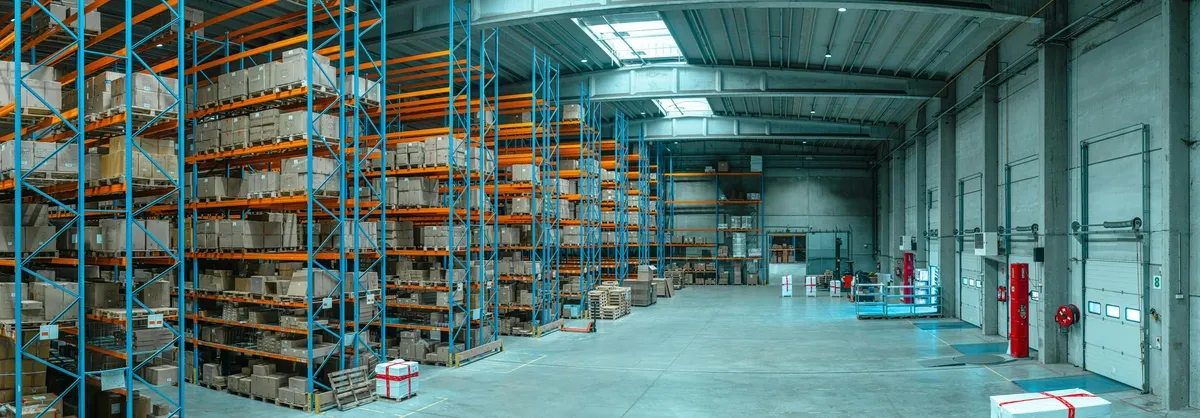
Sustainable supply chain management is a crucial aspect of modern business practices, particularly for environmental and sustainability consultancies striving to promote eco-friendly operations. By incorporating sustainable materials, reducing waste and emissions, enhancing supplier collaboration, and utilizing advanced technologies, businesses can achieve significant environmental benefits. This approach not only helps in meeting regulatory requirements but also drives long-term profitability and brand reputation in an increasingly eco-conscious market.
Understanding Sustainable Supply Chain Management
Sustainable Supply Chain Management (SSCM) is the practice of integrating environmental, social, and financial considerations into the sourcing, production, and distribution of goods and services. The primary objective of SSCM is to minimize negative impacts on the environment and society while ensuring efficiency and reliability in business operations (source).
For environmental and sustainability consultancies, SSCM plays a pivotal role. Supply chains are significant contributors to environmental impact, with studies indicating that they can be responsible for up to 11.4 times a company’s direct emissions, accounting for over 90% of total greenhouse gas emissions (source). By adopting SSCM practices, consultancies can help their clients significantly reduce carbon footprints and waste, contributing to broader environmental goals.
The benefits of SSCM extend beyond environmental impact. It can also lead to cost efficiency by reducing waste and minimizing energy consumption, enhancing the overall resilience and reliability of the supply chain. Moreover, a sustainable supply chain is essential for meeting Environmental, Social, and Governance (ESG) goals and protecting against potential reputational damage from negative environmental or unethical labor practices (source).
Key principles of sustainable supply chain management include:
- Supply Chain Management Integration: Embedding sustainability principles across all stages of the supply chain, from raw material sourcing to final product delivery (source).
- Emphasis on Supplier Management: Choosing and managing suppliers based on their commitment to sustainability as well as cost and efficiency (source).
- Utilization of Supply Chain Management Tools: Implementing advanced tools to monitor and enhance SSCM efforts (source).
- Lifecycle Assessment and Circular Economy Principles: Conducting life cycle assessments to gauge environmental impact and identify improvement opportunities (source).
- Continuous Improvement and Innovation: Regularly updating SSCM strategies to adapt to evolving environmental standards and innovate in sustainability practices (source).
By following these principles, consultancies can offer valuable insights and strategies for businesses to enhance their supply chain sustainability. This includes leveraging technology, ethical sourcing, and continuous improvement to achieve long-term success and meaningful environmental and social impacts (source).
Best Practices for Sustainable Supply Chain Management
Implementing sustainable supply chain management practices is essential for businesses aiming to minimize their environmental impact and promote long-term sustainability. Here are some best practices to consider:
Implementing Eco-Friendly Materials and Processes
Adopting eco-friendly materials and processes is a fundamental step in sustainable supply chain management. This involves selecting renewable, biodegradable, and recyclable materials that reduce the environmental footprint. For example, using recycled plastics, bamboo, and sustainably sourced wood can significantly lower waste and emissions. Additionally, embracing processes like lean manufacturing and green logistics can further reduce waste, energy consumption, and carbon emissions (source).
Enhancing Supplier Collaboration and Transparency
Building strong relationships with suppliers and ensuring transparency are pivotal for a sustainable supply chain. Companies should work closely with their suppliers to ensure compliance with sustainability standards and to foster mutual growth. Transparency in the supply chain helps in managing risks, building stakeholder trust, and ensuring that sustainability goals are met. It involves sharing information about sourcing practices, labor conditions, and environmental impacts (source).
Utilizing Technology for Tracking and Optimization
Technology plays a crucial role in tracking and optimizing supply chain activities. Advanced software solutions like Minute7 enable businesses to track time and expenses efficiently, contributing to overall sustainability efforts. By digitalizing supply chain management, companies can gain better visibility and control over their operations, leading to reduced waste and enhanced efficiency. Technologies such as Big Data analytics, AI, blockchain, and RFID sensors provide detailed insights and help in optimizing supply chain processes (source).
By implementing these best practices, businesses can significantly improve their supply chain sustainability, reduce their environmental impact, and achieve long-term economic benefits. Sustainable supply chain management not only helps in meeting regulatory requirements but also enhances brand reputation and operational efficiency in an increasingly eco-conscious market.
Case Studies of Successful Sustainable Supply Chain Initiatives
Case Study 1: A Leading Consultancy Firm’s Approach to a Sustainable Supply Chain
KEPLER, a boutique business management consulting firm, has earned recognition for its innovative approach to sustainable supply chain management. Their strategy involves designing and managing logistics master plans, Sales and Operations Planning (S&OP), sustainable supply chains, warehouse sizing and management, and urban logistics. KEPLER’s method is celebrated for its efficiency, helping businesses streamline their supply chain processes and boost revenues (source).
Similarly, Business for Social Responsibility (BSR) has collaborated with various companies to enhance sustainability across different sectors, including supply chains. Their work includes conducting double materiality assessments, supporting the implementation of the UN Global Compact Women’s Empowerment Principles, and performing climate risk assessments through scenario analysis (source). These efforts have helped companies integrate sustainability into their core operations, leading to improved environmental and social outcomes.
Case Study 2: Small to Mid-Sized Business Leveraging Minute7 for Sustainability
While specific case studies showcasing Minute7’s direct impact on sustainability goals are not available, existing research highlights the significant role that time and expense tracking software can play in promoting sustainable business practices. For example, a study on manufacturing SMEs in Germany identified Green Business Process Management (Green BPM) as a key factor in reducing environmental impact. Efficient time and expense tracking contribute to the “monitoring” and “optimization” aspects of Green BPM (source).
Minute7’s time and expense tracking solutions offer several benefits, including accurate client billing, operational cost monitoring, and compliance with internal policies and external regulations. These advantages help businesses reduce resource wastage, optimize budget use, and promote responsible business practices (source). By enabling paperless time tracking and expense reporting, Minute7 aligns with sustainable practices, reducing paper waste and enhancing operational efficiency (source).
Lessons Learned from the Case Studies
The case studies underscore the importance of strategic supply chain management in achieving sustainability goals. Consultancy firms like KEPLER and BSR demonstrate that tailored solutions can optimize supply chain processes, reduce environmental impact, and enhance operational efficiency.
Moreover, leveraging time and expense tracking software like Minute7 can significantly contribute to sustainability by minimizing resource wastage and promoting responsible business practices. Therefore, businesses should consider integrating such tools to facilitate their sustainability objectives.
Ultimately, these case studies highlight the need for a holistic approach to sustainability, encompassing supply chain management, time and expense tracking, and continuous innovation. By doing so, businesses can build a strong reputation as responsible entities, attract eco-conscious customers, and contribute to a more sustainable future.
Empowering Sustainability with Minute7
In conclusion, sustainable supply chain management is not just a strategic advantage but a necessity for businesses aiming to thrive in today’s environmentally-conscious market. By adopting best practices such as using eco-friendly materials, enhancing supplier collaboration, and leveraging technology, businesses can significantly reduce their environmental footprint and improve overall efficiency.
Real-world examples have demonstrated the effectiveness of these strategies. Leading consultancy firms have shown that tailored sustainable supply chain solutions can streamline operations, cut costs, and boost revenue. Similarly, small to mid-sized businesses using tools like Minute7 for time and expense tracking have seen improvements in resource management and operational efficiency. These tools not only facilitate accurate client billing and compliance but also support paperless operations, contributing to broader sustainability goals.
Minute7 stands out as a pivotal tool in this journey towards sustainability. By providing a robust platform for tracking time and expenses, Minute7 helps businesses optimize their resource use and align with sustainable practices. Its seamless integration with QuickBooks ensures that all tracked data is efficiently utilized for billing, reporting, and payroll, making it easier for businesses to focus on their sustainability objectives.
As more companies recognize the importance of sustainable supply chain management, integrating comprehensive tools like Minute7 becomes essential. Minute7 empowers businesses to take concrete steps toward sustainability, ensuring they remain competitive and responsible in an eco-conscious world. By adopting Minute7, businesses can not only enhance their operational efficiency but also make significant strides in their sustainability journey, ultimately contributing to a healthier planet and a more sustainable future.



